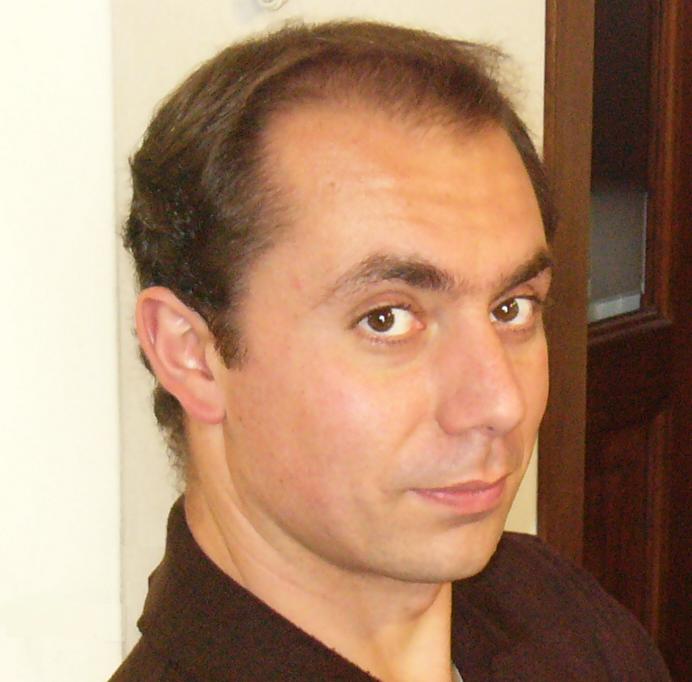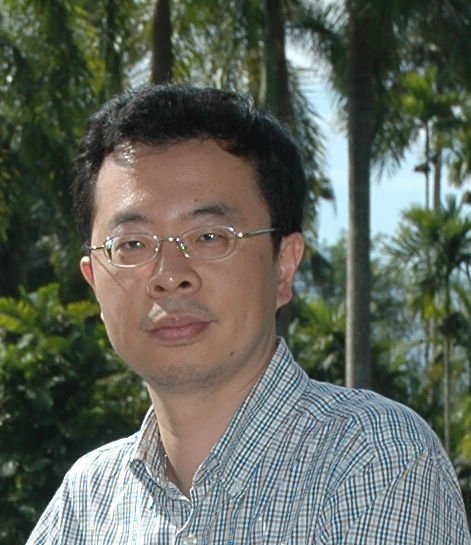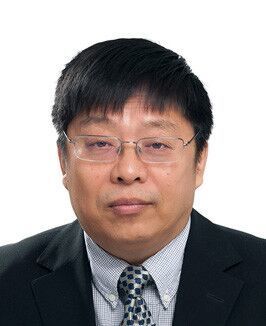Keynote Speakers
 Prof. Graziano Chesi,
Prof. Graziano Chesi,
IEEE Fellow
University of Hong Kong, HongKong, China
Graziano Chesi is a full professor at the Department of
Electrical and Electronic Engineering of the University of Hong Kong. He
received the Laurea in Information Engineering from the University of Florence
and the PhD in Systems Engineering from the University of Bologna. He served as
associate editor for various journals, including Automatica, the European
Journal of Control, the IEEE Control Systems Letters, the IEEE Transactions on
Automatic Control, the IEEE Transactions on Computational Biology and
Bioinformatics, and Systems and Control Letters. He founded the Technical
Committee on Systems with Uncertainty of the IEEE Control Systems Society. He
also served as chair of the Best Student Paper Award Committees of the IEEE
Conference on Decision and Control and the IEEE Multi-Conference on Systems and
Control. He authored the books "Homogeneous Polynomial Forms for Robustness
Analysis of Uncertain Systems" and "Domain of Attraction: Analysis and Control
via SOS Programming". He was elevated to the grade of IEEE Fellow for
contributions to control of nonlinear and multi-dimensional systems.
Speech Title: Multiple-View L2 Triangulation via Semidefinite Programming
Abstract: A key problem in computer vision consists of estimating the position
in the scene of a point from the available estimates of its image projections on
several cameras and the calibration parameters. This problem, known as
multiple-view triangulation, has received a number of contributions given its
importance. This talk explains how semidefinite programming, an area of convex
optimization, can be exploited to address this problem in the common case where
the reprojection error to be minimized is measured through the L2 norm. In
particular, two methods are presented, one suitable for real time applications
based on the fundamental matrices relating each pair of views, and the other
more accurate based on the projection matrices that characterize each view. Both
methods provide an estimate of the sought scene point together with a
certificate of optimality. The talk also explains how occlusions can be
considered in the presented framework.
 Prof. Changsheng Xu
Prof. Changsheng Xu
IEEE Fellow
Chinese Academy of Sciences, China
Changsheng Xu is a distinguished professor of Institute of Automation, Chinese
Academy of Sciences. His research interests include multimedia content
analysis/indexing/retrieval, pattern recognition and computer vision. He has
hold 50 granted/pending patents and published over 400 refereed research papers
including 100+ IEEE/ACM Trans. papers in these areas.
Prof. Xu is Editor-in-Chief of Multimedia Systems. He serves/served Associate
Editor of IEEE Trans. on Multimedia and ACM Trans. on Multimedia Computing,
Communications and Applications. He received the Best Paper Awards of ACM
Multimedia 2016 and 2016 ACM Trans. on Multimedia Computing, Communications and
Applications. He served as Program Chair of ACM Multimedia 2009. He has served
as associate editor, guest editor, general chair, program chair, area/track
chair, special session organizer, session chair and TPC member for over 20 IEEE
and ACM prestigious multimedia journals, conferences and workshops. He is an ACM
Distinguished Scientist, IEEE Fellow, and IAPR Fellow.
Speech Title: Connecting Isolated Social Multimedia Big Data
Abstract: The explosion of social media has led to various Online Social
Networking (OSN) services. Today's typical netizens are using a multitude of OSN
services. Exploring the user-contributed cross-OSN heterogeneous data is
critical to connect between the separated data islands and facilitate value
mining from big social multimedia. From the perspective of data fusion,
understanding the association among cross-OSN data is fundamental to advanced
social media analysis and applications. From the perspective of user modeling,
exploiting the available user data on different OSNs contributes to an
integrated online user profile and thus improved customized social media
services. This talk will introduce a user-centric research paradigm for
cross-OSN mining and applications and some pilot works along two basic tasks:
(1) From users: cross-OSN association mining and (2) For users: cross-OSN user
modeling.
 Prof. Derong Liu
Prof. Derong Liu
IEEE Fellow
Guangdong University of Technology, China
Derong Liu received the Ph.D.
degree in electrical engineering from the University of Notre Dame in 1994. He
was a Staff Fellow with General Motors Research and Development Center, from
1993 to 1995. He was an Assistant Professor with the Department of Electrical
and Computer Engineering, Stevens Institute of Technology, from 1995 to 1999. He
joined the University of Illinois at Chicago in 1999, and became a Full
Professor of Electrical and Computer Engineering and of Computer Science in
2006. He served as the Associate Director of The State Key Laboratory of
Management and Control for Complex Systems at the Institute of Automation, from
2010 to 2015. He is now a Full Professor with the School of Automation,
Guangdong University of Technology. He has published 19 books. He is the
Editor-in-Chief of Artificial Intelligence Review (Springer). He was the
Editor-in-Chief of the IEEE Transactions on Neural Networks and Learning Systems
from 2010 to 2015. He received the Faculty Early Career Development Award from
the National Science Foundation in 1999, the University Scholar Award from
University of Illinois from 2006 to 2009, the Overseas Outstanding Young Scholar
Award from the National Natural Science Foundation of China in 2008, and the
Outstanding Achievement Award from Asia Pacific Neural Network Assembly in 2014.
He is a Fellow of the IEEE, a Fellow of the International Neural Network
Society, and a Fellow of the International Association of Pattern Recognition.
Speech Title: AI and Machine Learning
for Optimal Control of Complex Nonlinear Systems
Abstract: Researchers have been searching for novel control methods to handle
the complexity of modern industrial processes. Artificial intelligence and
especially machine learning approaches might provide a solution for the next
generation of control methodologies that can handle the level of complexities in
many modern industrial processes. It has been shown by many researchers
reinforcement learning can do a very good job approximating optimal control
actions and provide a nearly optimal solution for the control of complex
nonlinear systems. It requires a combination of function approximation
structures such as neural networks and optimal control techniques such as
dynamic programming. Theoretical development has been on a fast-track in the
past ten years. On the other hand, parallel control, cloudcontrol, as well as
agent-based control have been studied as alternatives for handling complex
nonlinear systems. This lecture will review the development of these
methodologies to summarize the inherent relationship among these developments.
